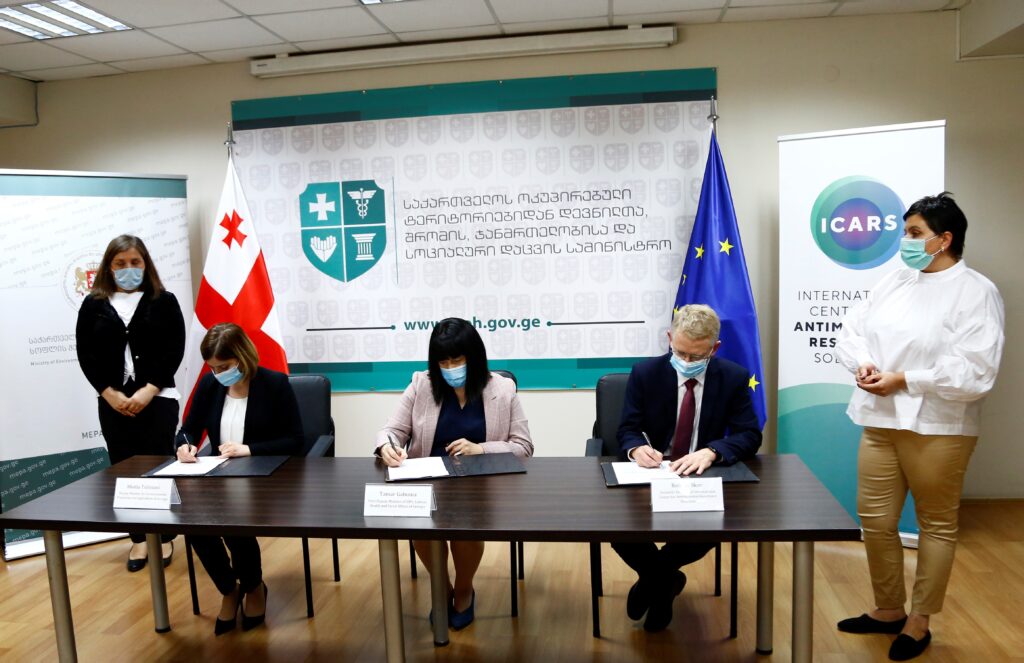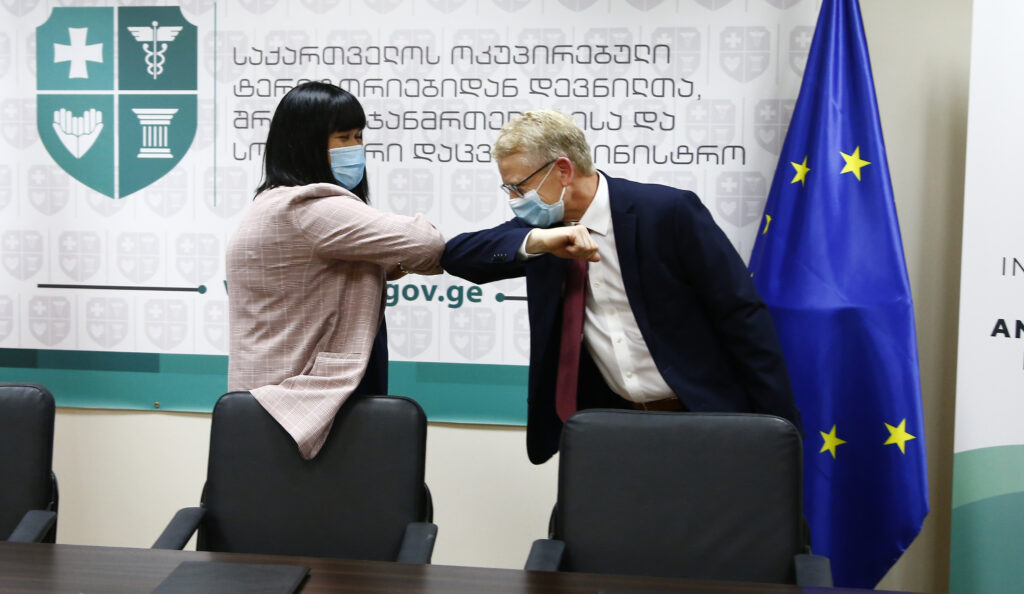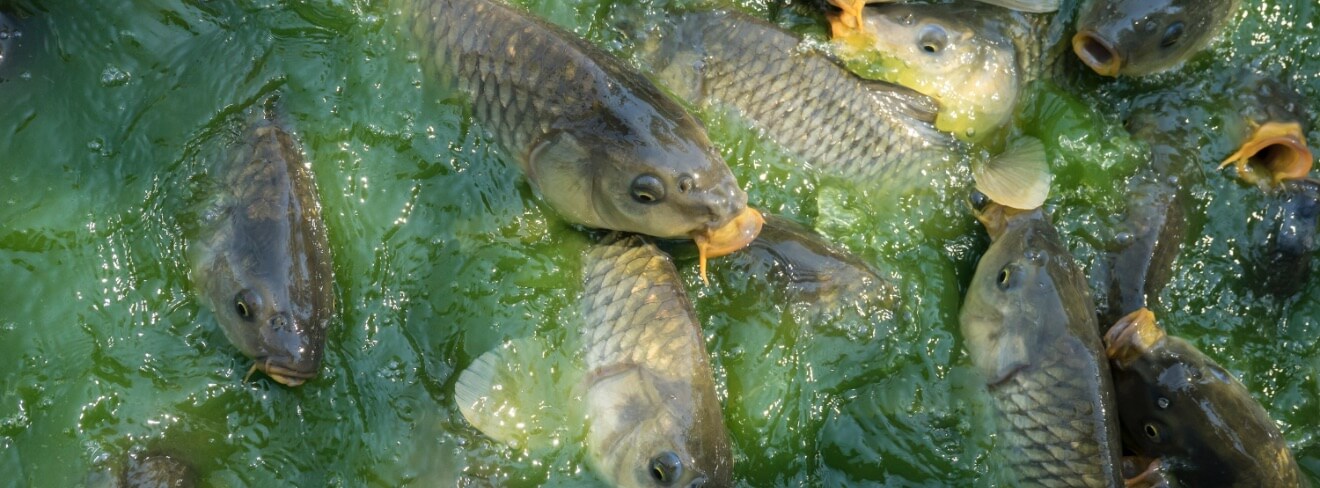The Danish-founded organization will work with two Georgian ministries to establish Antimicrobial Stewardship in healthcare facilities and agricultural and veterinary settings in Georgia

”“We are excited to see commitment from the Georgian government to fight antibiotic resistance and look forward to working together on developing practical solutions” said Robert Skov, MD and Scientific Director of ICARS.

“The memorandum envisages the implementation of activities against antimicrobial resistance. The process of using antimicrobial drugs becomes even more active in pandemic conditions. Today we have the opportunity to join the international movement and further develop this cooperation to minimize the risks of antimicrobial resistance,” said Tamar Gabunia, First Deputy Minister of IDPs, Labour, Health and Social Affairs of Georgia, at the Signing Ceremony.
Photos:
About ICARS
ICARS conducts independent, policy-relevant, applied research at international, national and local levels in low- and middle income countries to identify evidence-based solutions for fighting resistance to antimicrobials. It works in close collaboration with governments, research communities and key stakeholders to create context-specific interventions and test solutions for lowering resistance to antibiotics. ICARS was born at the initiative of the World Bank and the Danish Government and is based in Copenhagen. ICARS is in the process of developing into an independent international institution and is seeking partners to fulfill its mission.
Media Contact
Georgiana Baciu
Communications Officer, ICARS
gsb@icars-global.org
+4523499851

